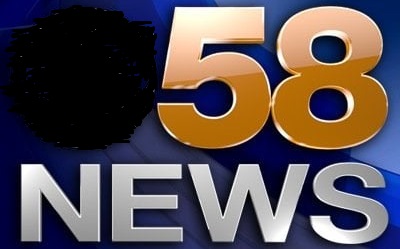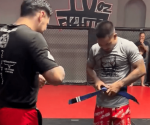The unwritten rules of tennis and why postmatch handshakes sometimes go awry at the US Open
NEW YORK (AP) — There’s been a lot of talk about the unwritten rules of tennis during Week 1 of this U.S. Open, whether it's the necessity of a “ sorry, not sorry ” raised hand after a let cord or the proper way to warm up with an opponent or the legitimacy of an underarm serve.
Another part of the game drawing attention — thanks to players' complaints about each of the above — is the postmatch greeting at the net, which usually involves shaking hands and, sometimes, a hug or kisses on the cheek. It would seem to be a simple act of sportsmanship, but every so often ends up going awry.
Not every contest in every sport ends with that sort of civility, but it is an entrenched ritual in tennis, from kids starting out to the pros, even if the word “handshake” never appears in the 61-page Grand Slam rule book.
“You do it in the juniors. You do it your whole life. It’s part of the fabric of our sport,” said Brad Gilbert, a former player and coach who is part of ESPN's cast in New York.
“You’ve got to win with class,” he said, “and lose with dignity.”
The Townsend-Ostapenko back-and-forth at the US Open drew scrutiny
Chris Evert, who won 18 majors in the 1970s and '80s, said: “I never had a bad moment at the net with anyone.”
That's hardly the case for everyone — as two episodes at the U.S. Open showed.
Jelena Ostapenko, the 2017 French Open champion from Latvia, got into a dustup with Taylor Townsend, the No. 1-ranked doubles player from the U.S., after clasping hands following Townsend's victory.
Instead of going their separate ways, the athletes exchanged words, with Ostapenko pointing a finger at Townsend, who is Black, and calling her “uneducated.” Ostapenko was upset that Townsend didn't apologize after a ball hit the net tape and went over (that's not actually a rule) and started their warmup with volleys instead of groundstrokes (not a rule, either).
“Ostapenko,” Gilbert said, “was ridiculous.”
The US Open handshake between Tsitsipas and Altmaier didn't go well
On Thursday, another net encounter went badly when the loser, two-time Slam finalist Stefanos Tsitsipas, let the winner, Daniel Altmaier, know he hadn't appreciated an underarm serve — which is allowed.
Rather than engage, Altmaier turned his back on Tsitsipas.
“In the heat of the moment, you can stay stuff which you (wouldn't) normally … say (and) you regret afterward,” Altmaier said, adding that he's not a fan of “discussions at the net.”
Neither is 20th-seeded Jiri Lehecka, who thinks conflicts are better resolved “in the locker room, behind closed doors,” instead of in front of a crowd and TV audience.
It's not just at the US Open that there can be tension in tennis
Tense moments at the net are not merely a U.S. Open phenomenon, and there's a segment of tennis social media that chronicles every half-hearted handshake.
“Some people don’t really have a lot of things to do throughout the day, so they pay a lot of attention to this,” said 21st-seeded Linda Noskova.
So folks noticed when Ben Shelton and Flavio Cobolli had a back-and-forth after a match in Canada this month. Or when Danielle Collins gave Iga Swiatek an earful about being “insincere” at the Paris Olympics. Or when Taylor Fritz sarcastically told a Wimbledon opponent to “ have a nice flight home ” after beating him in 2024.
“Maybe if I didn’t like someone really, really hard, then probably — maybe — I wouldn’t want to shake hands with them,” said Swiatek, a six-time Grand Slam champion, “but besides that … it’s good to congratulate someone if you lost."
Andrea Petkovic, a 2014 French Open semifinalist who retired three years ago, enjoyed getting glimpses of the “persona of the player.”
She chuckled while recounting a loss to Serena Williams in Rome: “At the end, she said to me, ‘Nice try.’”
No one wants to eliminate tennis handshakes after to-dos at the US Open
No one wants to see this tradition go away, although two-time major semifinalist Maria Sakkari knows there are “going to be incidents where people don’t like each other.”
“We are … from different countries, different cultures,” Sakkari said. “It’s normal that two people are going to fall out.”
And not only after a match.
Gilbert nearly came to blows during what he called “a big tiff” with David Wheaton at the 1990 Grand Slam Cup, before an official separated them. Wheaton was upset about an overrule; things escalated from there.
“Got pretty heated,” Gilbert said, “but afterward, we still shook hands.”
___
Howard Fendrich has been the AP’s tennis writer since 2002. Find his stories here: https://apnews.com/author/howard-fendrich. More AP tennis: https://apnews.com/hub/tennis










